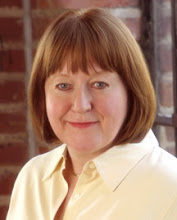
Nicolas Ghesquiere, creative director of the House of Balenciaga, is quoted in the current issue of Vogue, as saying: “We can’t keep making more, more, more to keep people craving newness. That’s not the value of luxury. It takes time to make something well.”
Ghesquiere, along with Stella McCartney and Francois-Henri Pinault, chairman and CEO of PPR, were three of the speakers at a conference held the end of March in New Delhi on Sustainable Luxury, which was sponsored by the International Herald Tribune.
Each of the speakers underscored something that I believed to be self-evident—that luxury goods represent the finest in craftsmanship, that they are timeless creations, that their luxuriousness lies in their extraordinary value in terms of their beauty, the skill on the part of artists and craftsmen and –women in their execution, and their respectful use of some of the world’s most precious materials.
Most interesting were Pinault’s comments on corporate responsibility and its connection to sustainability in the luxury business:
“Because a luxury product is the result of such painstaking efforts to meet the highest expectations of quality, it is not subject to the whims of style or season.
Later: “Buyers of luxury goods naturally expect the best. From design to the point of sale, via the working conditions of those involved in the process, everything must be a model of transparency. From luxury, people expect perfection but also sincerity. By ‘sincerity,’ I mean faith in what is being created, belief in what one is doing, and rejection of deceit. These expectations of sincerity should guide the luxury business, make it irreproachable.”
To my mind, these are guidelines for all the products we buy and produce, whether or not they may be termed luxurious. (Pictured above, work by Janet Swartz from JBird Jewelry).


No comments:
Post a Comment